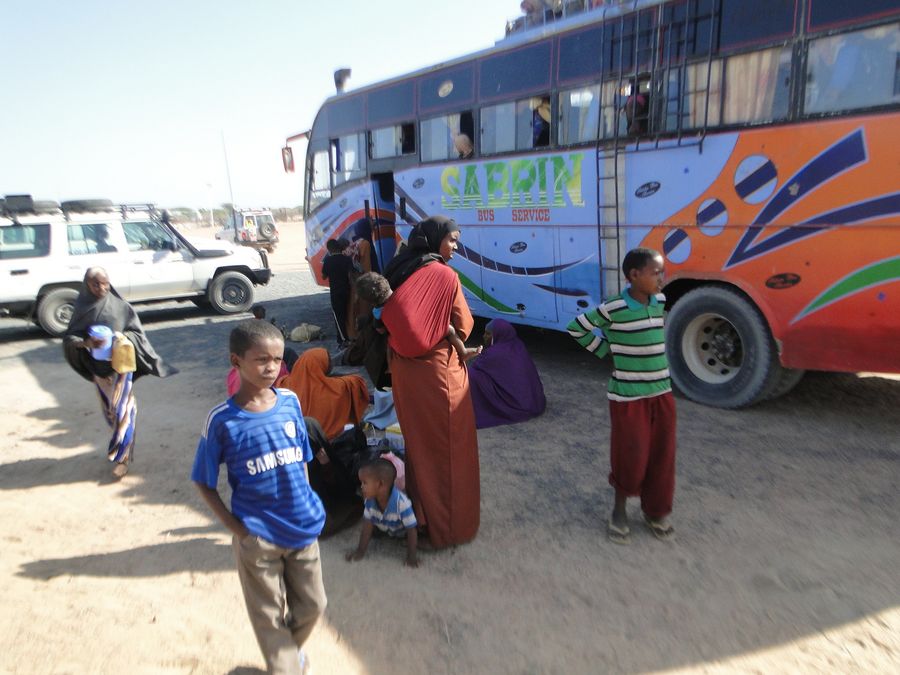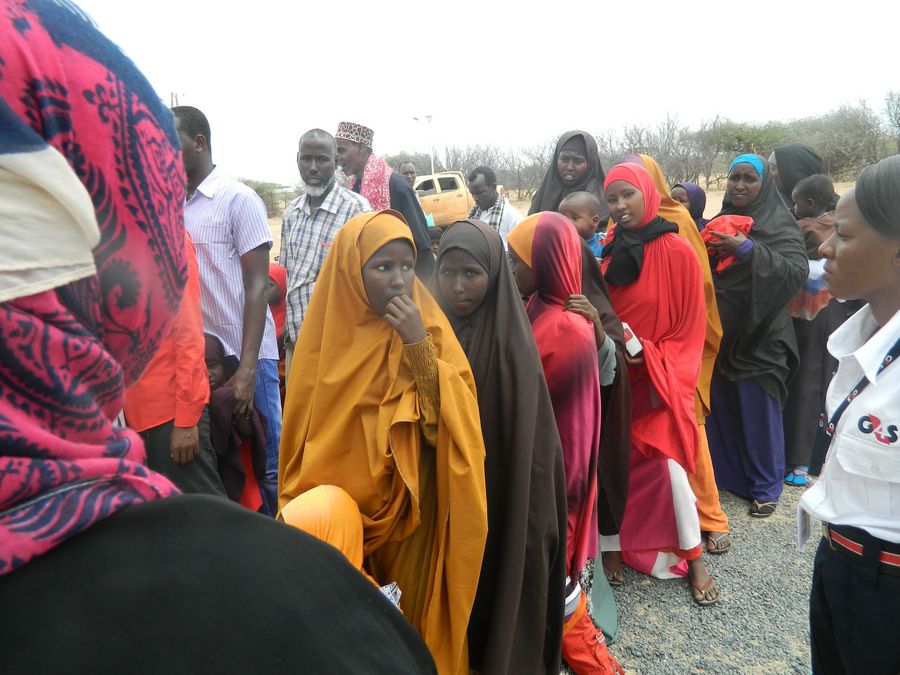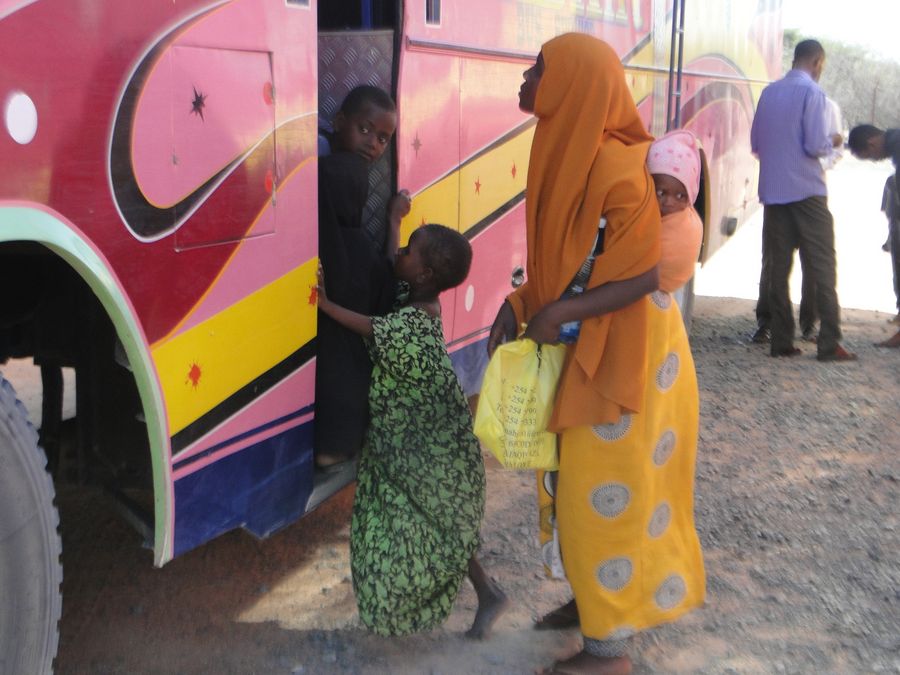
The file photo shows Somali refugees prepare to get on a bus heading for Somalia at Dadaab in Garissa, Kenya, on July 1, 2016. (Xinhua/Stephen Ingati)
The UN refugee agency says more than 4,800 Somali refugees have returned home from Yemen since it started an Assisted Spontaneous Return (ASR) program in 2017.
MOGADISHU, Oct. 30 (Xinhua) -- The UN refugee agency said Tuesday more than 4,800 Somali refugees have so far returned home from Yemen since it started an Assisted Spontaneous Return (ASR) program in 2017.
The UNHCR said 37 organized departures have now taken place from Yemen to Somalia since the ASR program commenced two years ago.
"In the latest departure, a boat carrying 114 Somali refugees left the Port of Aden on Monday and arrived at the Port of Berbera in Somalia today," UNHCR said in a statement.
The program is facilitated by UNHCR in cooperation with humanitarian partners and authorities in Yemen and Somalia.

The photo shows Somali refugees queue for screening before boarding a plane back to their motherland at the Dadaab airstrip, northeastern Kenya, Nov. 2, 2015. (Xinhua/Stephen Ingati)
It said some of the refugees returning home in Monday's ASR movement told the UN agency they were optimistic about a new life in Somalia and were hopeful that they will be able to secure their livelihoods by starting businesses.
A refugee father said he aims to open a small business once home and provide a better life for his four children, including his one-year-old daughter who was the youngest passenger on the boat.
According to the UN refugee agency, Yemen is experiencing prolonged conflict and civilians are facing life-threatening conditions. And the situation for refugees, asylum seekers and migrants in the country has deteriorated significantly.

The photo shows Somali refugees prepare to get on a bus heading for Somalia at Dadaab in Garissa, Kenya, on July 1, 2016. (Xinhua/Stephen Ingati)
"In addition to the dangers posed by ongoing hostilities, many refugees are now encountering increased hardship, lack of access to basic services and struggle to cover basic needs and sustain themselves given limited work and economic opportunities," said UNHCR.
It said humanitarian agencies also face significant challenges in ensuring safety, humanitarian assistance and access to essential life-saving services for refugees and asylum-seekers in the country.
According to UNHCR, refugee movements from Somalia to Yemen have been taking place since the 1980s and continued following the outbreak of civil war in Somalia, with many fleeing generalized violence and individualized fear of persecution in addition to the consequences of drought and a lack of livelihood opportunities. ■



